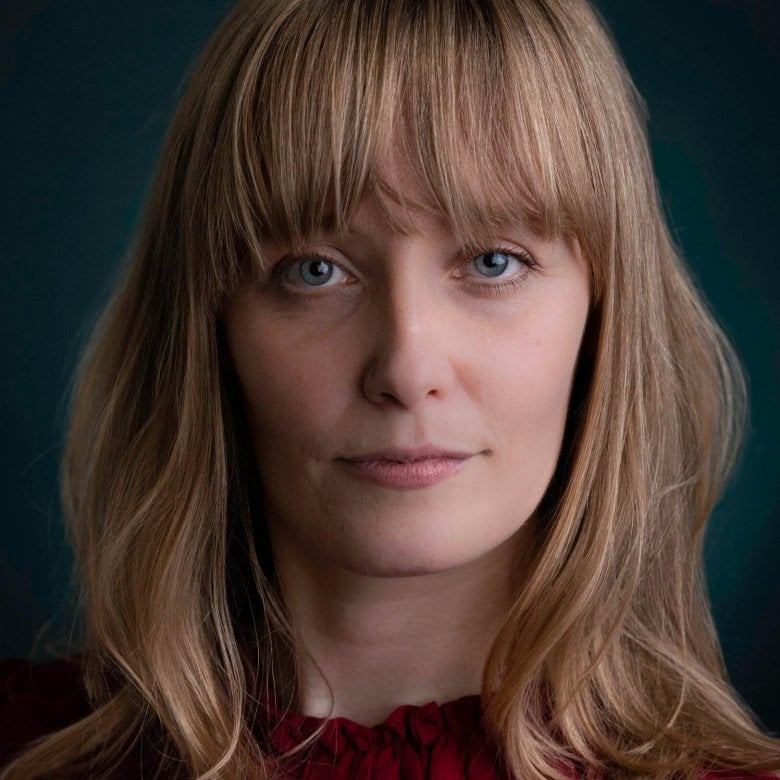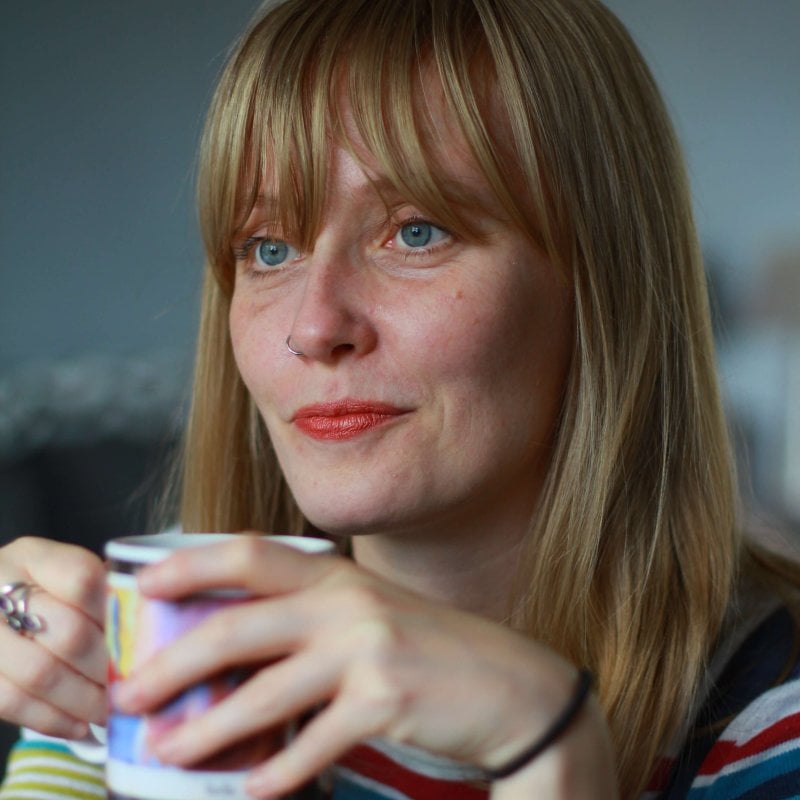Susan Lay’s journey from MA to filmmaking in Cornwall
04 July 2024

Image credit: Duncan Guymer
Lead image by Thom Axon.
Susan Lay studied MA Film & Television, graduating in 2019, and has since gone on to write, produce, and direct a number of short films in Cornwall, centred on the experiences in the county and use of the Cornish language.
On life before her MA, Susan says, "I left school at 16 and had a few jobs that I didn’t feel fulfilled by before gaining a place at drama school aged 24. After graduating, I had some stage acting jobs in London before moving into screen work, but I wanted to move out of London, and so moving closer to my family in Cornwall seemed like a good option.
"I was interested in going back into education but didn’t think I was clever enough or academic enough to do an MA. I was drawn to Falmouth as it is an arts university, and I was intrigued by the collaboration that brings. It felt exciting to have students from different creative disciplines all studying in one place, in such a beautiful setting. I wanted to explore other possibilities for creative expression and craved intellectual stimulation as well as practical skills. This course offered both.
"In the beginning, I learned that having a professional attitude goes a long way – even if you lack experience, people are more willing to work with you if you conduct yourself professionally and have a positive approach. I was scared to touch the cameras at first! Slowly, I realised that I’m much more capable than I thought, and with the support of the brilliant technicians, I edited a short film and even tried cinematography.
"There was always the opportunity to try out different filmmaking roles – this helped me gain a deeper understanding of people’s roles, their needs, and how to communicate better when working on a project. Our screenwriting lecturer once told us that the course wasn’t necessarily about grades; it was more important to try things out and ‘learn about yourself through film and TV’. That’s a quote I still love today."
It was at this point, after experimenting on multiple projects across disciplines, that Susan uncovered a ‘desire to direct’.
"It was very empowering for me to step into the role of director," says Susan. "I was able to put my acting experience to good use, and being able to work with young actors at AMATA to create short films was exciting and satisfying."
Susan went on to be the editor on Nos Dha, a 7-minute piece that contained Cornish language dialogue, which received a distinction by my lecturers. "It gave me the confidence I needed as I never thought I’d be able to edit a film," says Susan. Other pieces she was involved in didn’t get quite as much acclaim, but still gave Susan opportunities to develop "I was able to learn why it didn’t work and how I could improve in my role. To be able to critically reflect was hugely beneficial."
Image credit: Duncan Guymer

Since graduating the MA, Susan went on to produce Kestav, another Cornish language film. "I got to work with a director who was very collaborative and really put their trust in me. They valued my thoughts creatively from script to edit." Kestav went on to have a good festival run and can be viewed for free on the BBC website.
"My most recent project was writing and directing The Weight, which was funded by Falmouth University/SICL and Screen Cornwall. The idea was born in a screenwriting workshop on the MA, and I developed the script further before getting the funding to take it to production. In the project, I got to work with a number of Falmouth students and graduates that I’d met on Kestav. We had some challenges to overcome with the shoot, partly due to me needing emergency appendicitis surgery! In the end, I was very proud of the result and learned a great deal from the experience."
Speaking more broadly about how her MA helped her career, Susan says, "I’ve gained a deeper knowledge of the world of film and TV, and a hunger to engage with a broader range of films that I wouldn’t have been exposed to beforehand. I’ve gained more confidence in voicing my thoughts and opinions to others as well as in my ability to learn. I’ve gained experience on how to create and run a set, how to tackle the stages of production and the problems that may arise."
On what’s next for her, Susan says, "Looking forward, I’d like to develop an idea I have for a feature, although I’d like to write/direct more shorts before embarking on that. I’d love to eventually co-found a production company, create opportunities for more women to be behind the camera, and support people from working-class backgrounds in Devon and Cornwall to gain more access to the industry. I hope to create more work about women, particularly mature women, as they are underrepresented on screen."




